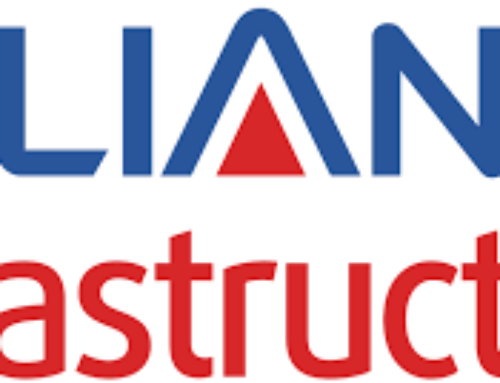Industry Overview: India is the second-largest cement manufacturer with 139 cement plants, 365 mini plants & 40 players. India’s cement demand is expected to reach 550-600 Million Tonnes Per Annum (MTPA) by 2025.
A few companies dominate the Indian cement industry. The top 20 cement companies account for almost 70 percent of the total cement production in the country. A total of 188 large cement plants together account for 97 percent of the full installed capacity in the country, with 365 small plants accounting for the rest. Of these large cement plants, 77 are located in the states of Andhra Pradesh, Rajasthan, and Tamil Nadu.
India has a lot of potential for development in the infrastructure and construction sector, and the cement sector is expected to benefit from it primarily. Some of the recent major government initiatives, such as the development of 98 smart cities and large Infrastructure projects leading to 45 million tonnes of cement needed in the following three to four levels, are expected to boost the sector significantly.
To meet the rise in demand, cement companies are expected to add 56 MT capacity over the next three years. As a result, the cement capacity in India may register a growth of eight percent by next year’s end to 395 MT from the current level of 366 MT. It may increase further to 421 MT by the end of 2017. The country’s per capita consumption stands at around 190 kg.
Expecting such developments in the country and aided by suitable government foreign policies, several foreign players such as Lafarge-Holcim, Heidelberg Cement, and Vicat have invested in the country in the recent past. A significant factor that aids the growth of this sector is the ready availability of the raw materials for making cement, such as limestone and coal.
The housing sector is the biggest demand driver of cement, accounting for about 67 percent of the total consumption in India. The other significant consumers of cement include infrastructure at 13 percent, commercial construction at 11 percent, and industrial building at 9 percent.
Company Overview: UltraTech Cement is India’s largest Cement Manufacturing company. The company is part of Aditya Birla Group and is a subsidiary of Grasim Limited. UltraTech is also the largest manufacturer of white cement and ready-mix concrete (RMC) in India.
It manufactures ordinary portland cement commonly used in dry–lean mixes, general-purpose ready–mixes, and even high strength pre-cast and prestressed concrete.
It produces a Portland blast furnace with features like a lighter color, better concrete workability, easier finish ability, higher compressive and flexural strength, improved resistance to aggressive chemicals, and more consistent plastic and hardened consistency. It also manufactures portland pozzolana cement.
The company has a variety of brands under which it sells Cement. They are ‘UltraTech, UltraTech Premium, and Birla Super.’ White cement is manufactured under the brand name — ‘Birla White’, ready-mix concretes under the title — ‘UltraTech Concrete’, and new-age building products under the brand — ‘Xtralite, Fixoblock, Seal & Dry and Readiplast’.
UltraTech Cement has 12 hybrid plants, one white cement plant, one wall care putty plant, one clinkerisation plant in the UAE, 16 grinding units (12 in India, two in the UAE, and one each in Bahrain and Bangladesh), and six bulk terminals (five in India and one in Sri Lanka). UltraTech Cement is India’s largest cement and clinker exporter, reaching out to meet demand in countries around the Indian Ocean and the Middle East. With 100+ Ready Mix Concrete (RMC) plants in 35 cities, UltraTech is India’s largest concrete manufacturer. It also has a slew of specialty concretes that meet the specific needs of discerning customers.
Ultratech cement exports over 2.5 million tonnes per annum, accounting for 30% of the country’s total exports. It exports to countries like Africa, Europe, and the Middle East.
The company’s subsidiaries are Dakshin Cements Limited, Harish Cements Limited, UltraTech Cement Lanka (Pvt) Ltd, and UltraTech Cement Middle East Investments Limited.
UltraTech’s inception can be traced back to the mid-1980s with the establishment of Grasim’s first cement plant at Jawad in Madhya Pradesh. In 2001, to increase its reach, Grasim acquired a stake in L&T Cement Ltd. (L&T Cement was incorporated on August 24, 200. It was a 100% subsidiary of Larsen and Toubro.) In 2004, according to the scheme of the arrangement, the cement business of Larsen & Toubro Ltd was demerged and transferred to the company with effect from April 1, 2003. As a result, on May 14, 2004, the company acquired four crore equity shares of Larsen & Toubro Ceylino (Pvt) Ltd from Larsen & Toubro Ltd at an aggregate consideration of Rs 23.03 crore.
In July 2004, Grasim Industries Ltd acquired management control of the company, and on October 14, 2004, the name of the company was changed from UltraTech ChemCo Ltd to UltraTech Cement Ltd. Also, Narmada Cement Company Ltd became a company subsidiary under the scheme of arrangement for the demerger of the cement business of Larsen & Toubro Ltd.
The stake was further increased to a majority stake in 2, giving Grasim a pan-India presence and increased market share. In 2004, the demerger of L&T’s cement business was completed, and Grasim acquired a controlling stake in L&T Cement Ltd. The name was subsequently changed to UltraTech Cement. The cement business of Grasim was demerged and vested in Samruddhi Cement Limited in May 2010, with Samruddhi Cement Limited consequently being amalgamated with UltraTech Cement Limited in July 2010. In September 2010, UltraTech Cement Middle East Investments Limited, a wholly-owned subsidiary of UltraTech Cement, acquired management control of ETA Star Cement Company, along with its operations in the UAE, Bahrain, and Bangladesh UltraTech on the global map.
SHAREHOLDING BSE Data
Financials and Ratio’s : [table id=24 /]
Future Prospects: Though there is a significant potential for Cement companies in India as the new Govt is taking Infrastructure development as an essential task, the companies are mainly unfair by making cartels and increasing prices. Telangana holds considerable potential for the companies as the state needs to build new infrastructure, including new Capital.




